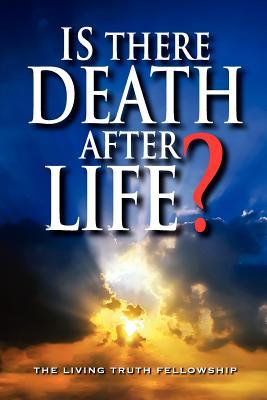Speak to the dead and hear from deceased loved ones? Is this possible? Are sances real? Is it God's will or a counterfeit? What happens when you die? Is it the end, or is it a temporary pause before a new beginning? Do you know that some people on earth will escape death altogether? Read on for more detail or buy the book for a life-changing read. By definition, no one can be both "dead" and "alive." This book gives biblical answers to the following questions: What is death? Is death a "graduation"? Is death a friend or foe? What is the "soul"? Where are the dead? Why does God use the metaphor of "sleep" to describe death? When will the dead awaken? What are the practical benefits to believing the truth about this subject? After laying the groundwork by answering these questions, the book deals with 14 sections of Scripture commonly used to "prove" that the "dead" are "alive." With numerous references to other Christian writings, the authors show how Greek philosophers shaped the current "evangelical" doctrine of the immortality of the soul, and they briefly point out how and why the Reformation failed to reform this pagan belief that is now even more firmly entrenched in Christendom.

Is There Death After Life?
Speak to the dead and hear from deceased loved ones? Is this possible? Are sances real? Is it God's will or a counterfeit? What happens when you die? Is it the end, or is it a temporary pause before a new beginning? Do you know that some people on earth will escape death altogether? Read on for more detail or buy the book for a life-changing read. By definition, no one can be both "dead" and "alive." This book gives biblical answers to the following questions: What is death? Is death a "graduation"? Is death a friend or foe? What is the "soul"? Where are the dead? Why does God use the metaphor of "sleep" to describe death? When will the dead awaken? What are the practical benefits to believing the truth about this subject? After laying the groundwork by answering these questions, the book deals with 14 sections of Scripture commonly used to "prove" that the "dead" are "alive." With numerous references to other Christian writings, the authors show how Greek philosophers shaped the current "evangelical" doctrine of the immortality of the soul, and they briefly point out how and why the Reformation failed to reform this pagan belief that is now even more firmly entrenched in Christendom.